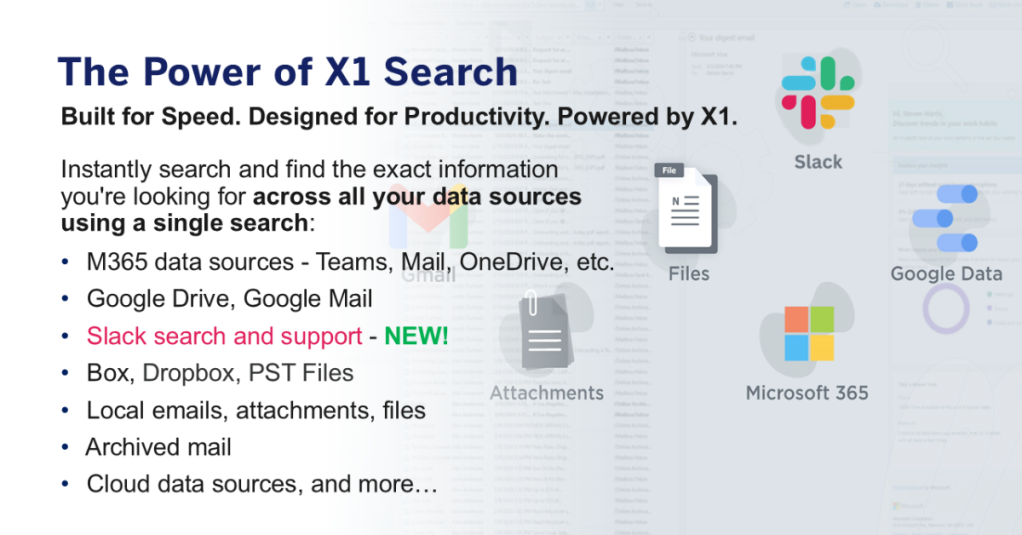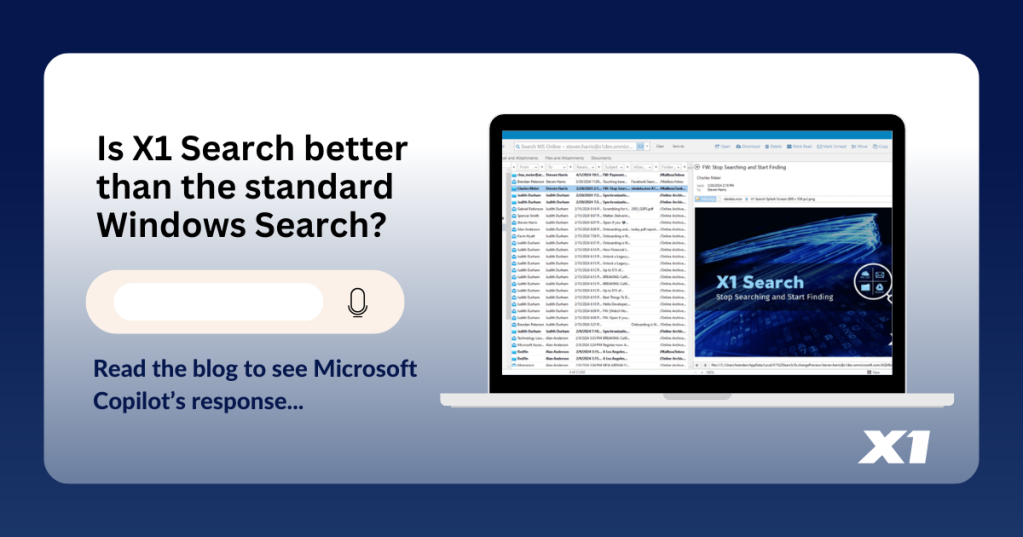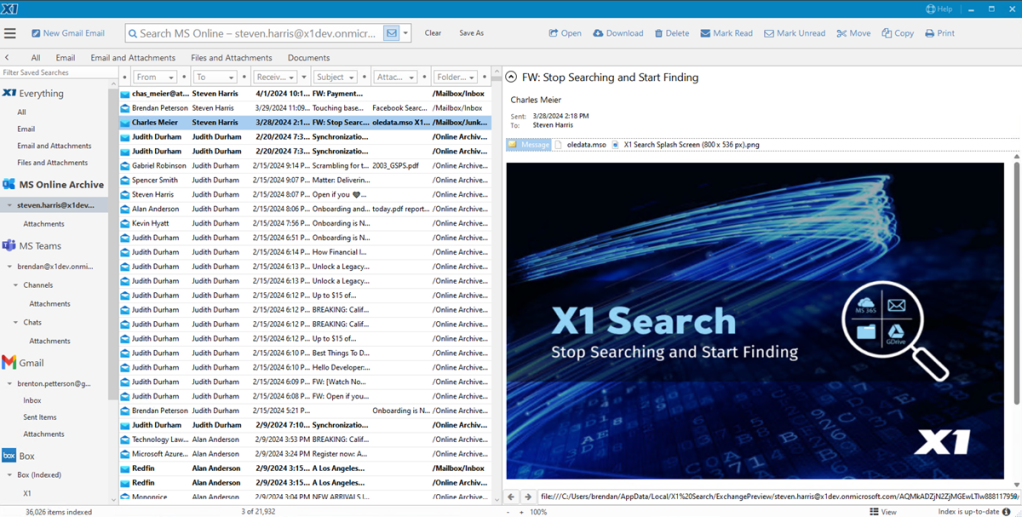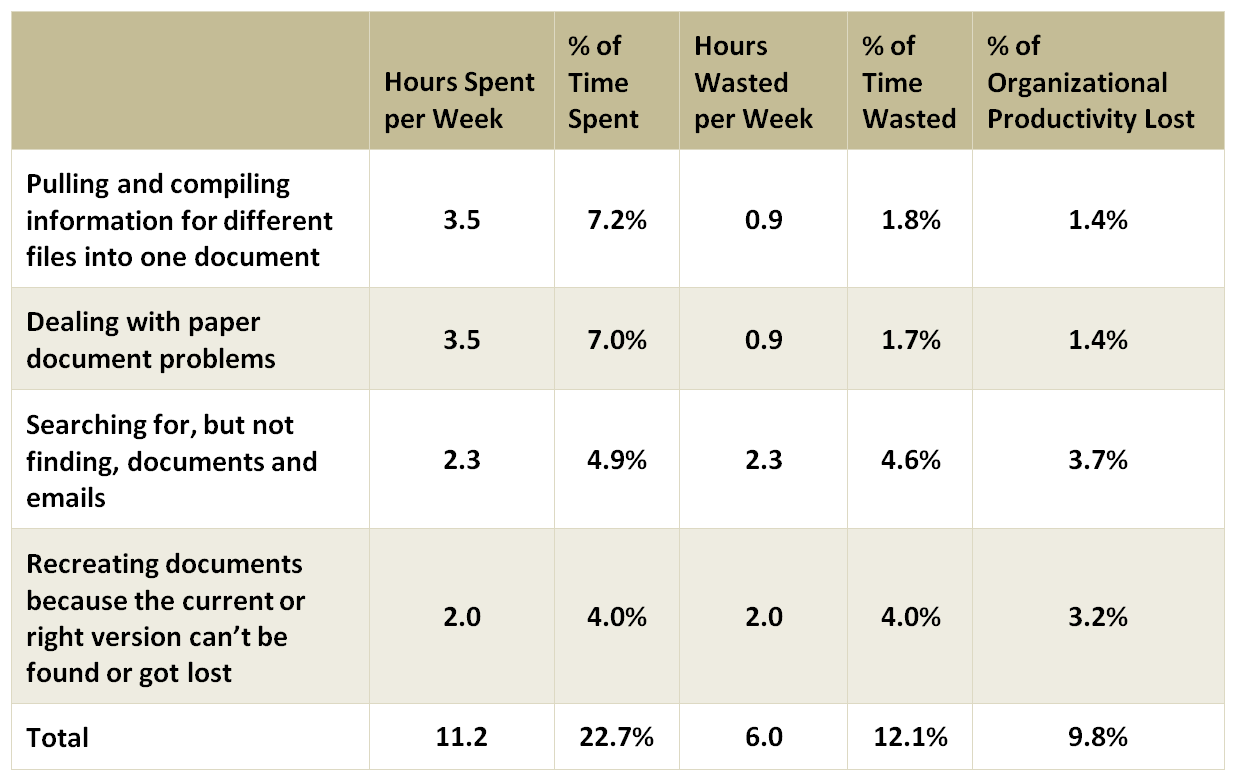By John Patzakis
Enterprise search has long been a pain point for organizations—fragmented data, slow retrieval, and outdated architectures have left businesses struggling to find information efficiently, resulting in millions of hours of lost productivity. But with the release of X1 Search Version 10, a new era has arrived—one that redefines how business professionals search, discover, and act on their information across cloud and endpoint ecosystems.
And the standout features? Full integration with Slack, enhanced support for Microsoft 365, support for Gmail and Google Drive and numerous other cloud data sources, as well as improvements to our enterprise-grade speed and scalability! With version 10, you can now search Slack in tandem with your email, files, and your Microsoft 365 data sources, including Teams.
Slack and Teams have become the modern enterprise’s water cooler and meeting room rolled into one. It is where you and your colleagues have critical conversations, exchange files, and document decisions. But until now, most enterprise search tools could not index Slack effectively, let alone allow unified searching across Slack and email.
X1 Search 10 changes the game by uniquely enabling real-time search across Slack messages, channels, and attachments alongside your Outlook, M365, Google Workspace, files, and more—all in a single interface. This allows business professionals to instantly search all their key information and full context of communication threads, no matter where their conversations took place. Imagine searching, seeing, and acting on your relevant Slack chats, Teams chats, email threads, and related documents side by side, in seconds. No toggling between systems. No data blind spots. Just instant insight and supercharged productivity.
Speed, Scale, and Simplicity with Micro-Indexing
What makes this lightning-fast and massively scalable experience possible is X1’s patented search and micro-indexing architecture. Unlike legacy systems that first require inefficient, time-consuming crawlers to collect, duplicate, and then transfer the data en masse into central repositories, which is a recipe for failure, X1 indexes data in-place. This means:
• No massive data movement
• Real-time indexing at the source
• Full maintenance of user permissions and access controls
• Lightning-fast search response times—even across multi-terabyte datasets
This distributed, index-in-place model is purpose-built for today’s data environment, where critical content lives across cloud platforms (Microsoft 365, OneDrive, SharePoint, Slack), endpoints, MS Exchange Servers, and file shares. With X1, organizations get a true federated view of enterprise content—without sacrificing speed, security, information governance, or user experience.
Legacy Enterprise Search Is Officially Obsolete
Traditional enterprise search tools—built for centralized environments—are no match for the demands of the modern workplace. As data continues to fragment across cloud platforms, remote endpoints, and collaboration apps like Slack and Teams, the old Enterprise Content Management (ECM) model of copy and migration to centralized indexing is completely untenable in terms of the laws of physics as well as creating significant security and governance risks.
X1 Search leapfrogs past those outdated architectures. With native support for Slack, robust Microsoft 365 integration, and enterprise-grade security and scalability, X1 enables rapid search and collection across the full digital workplace.
No more hours of lost productivity per week. Just real-time, precise search across your enterprise data—wherever it lives.
X1 Search Version 10 is now available. Ready to see it in action? Watch a 4-minute demo or obtain a free trial license (no credit card required) now.





 Source: IDC’s Information Worker Survey, June 2012
Source: IDC’s Information Worker Survey, June 2012